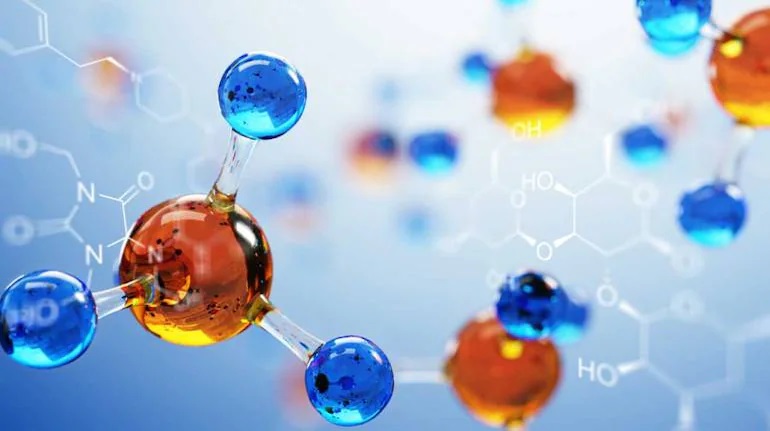Experts point out the advantage in terms of skilled manpower, industry friendly policies, and 100% FDI

Specialty chemicals account for a major share of more than 50% of chemical exports, dominated by agrochemicals, dyes and pigments. Deliberating on the opportunities for attracting investments in various subsegments of specialty chemicals, the stakeholders at the ‘Conclave on Specialty Chemicals’ on the sidelines of ‘India Chem 2022’ explored ways to reduce the dependence on imports.
“The size of the specialty chemicals industry in India is about 35 billion. This segment of the industry has been growing at 2.5 times of the GDP over the last decade and a half, thanks to the efforts of the industry and the government. This trend will continue. Expectation is that by 2025, the specialty chemicals industry is expected to be US$ 65-70 billion. It will be export oriented and plays an important role in overall macroeconomics,” said Jayant V Dhobley, Business Head and CEO, Global Chemicals, Fashion Yarn & Insulators, Aditya Birla Group, at the recently concluded 12th Biennial International Exhibition and Conference in New Delhi.
“If we look at the makeup of the specialty chemicals industry, a lot of it is built on the DNA of process engineering such as agrochem. We are very good at process intensification High performance ketones, India is a very small participant. If we look at the nutrition segment such as vitamins. If we look at the size of opportunity, our growth should be much more ambitious As the world looks at decarbonisation,” added Dhobley.
“Specialty chemicals is an important segment due to its huge export potential. Since our penetration ratio is very low both domestically and globally, it presents opportunities in personal care, water treatment and hygiene domestically and export potential. About 50% of export of chemicals is specialty chemicals but in terms of global trade pie, it is less than 5%. We have got the competitive advantage globally in terms of cost effective skilled manpower, industry friendly policies, and 100% FDI. Our ease of business ranking has improved substantially in the last five years. The sector is projected to grow by 13-15%,” said Susanta Kumar Purohit, Joint Secretary (Chemicals), Department of Chemicals & Petrochemicals, Ministry of Chemicals and Fertilizers, Gov.t of India.
“The fundamental premise for the growth of specialty chemicals would be that it typically will grow at a rate of 1.5 times of GDP. We have seen in our business that GDP has grown but slowly because the market is not in a state to absorb new molecules as compared to worldwide adoption. From the government perspective, the export focus is very critical. Also, giving the industry global scale plants is important to push exports. Land availability for plants is required too. Ramping up the skilled manpower, industry academia partnership has to be promoted. Integrated industry oriented programmes must be developed. There is no easy solution as there are long drawn processes,” says Rajen Mariwala, MD, Eternis Fine Chemicals.
“We need to build talent and image for the industry. Countries such as the USA and Europe have a lack of talent and therefore must grant a group visa for at least 50 skilled workers for six months. On one hand we have to grow our industry to US$ 100 billion, we will have to create the environment for that. The agrochemicals present a great opportunity as the market will turn from innovation to innovation. India has a huge scope for sustainable innovation and manufacturing. We have to choose the specialized areas and identify the 5-6 value chains where we can deliver end to end,” Sagar Kaushik, Chief Operating Officer, UPL.
“Specialty chemicals which are bio-based need similar attention as these are getting attention across the world but less in India. Since the policy is at the centre stage of this growth, we need policies to address the issues that hamper it. There need to be policies similar to ethanol blending so that it can help in decarbonization drives. We have to see how we can get green carbon in all of our products as we have a lot of biomass. Currently, most of the ethanol for the industry is being imported as most of it in India is used for blending purposes. We have to strike a balance between environmental regulations and market demand,” said Dr. Sangeeta Srivastava, Executive Director, Godavari Biorefineries Ltd.
“Flouro-chemistry is actually the building blocks of the chemistry. Last year I met executives of Saint Gobin which is into performance plastics, automobiles and aerospace. They have said that despite the freight going high on interest rate, they are perceiving 5%-8% growth in their areas of their own domain. And from the new sunrise sectors they are expecting a growth of 30% CAGR in next five years. The growth drivers include EV batteries segment that is evolving, use of chemicals in polymers, LIPS6, and electrolytes, fluoro-chemistry etc. Another growth driver is 5G as the cables, mobiles, sheets are made of fluoropolymers. The next big thing is hydrogen fuel cells and there is huge opportunity for polymers,” said Mukesh Malhotra, Country Manager & Managing Director, Solvay Specialities India.
“If batteries grow in India, a host of specialty chemicals would flow in. Nobody would have imagined a huge battery opportunity coming up in India. The batteries require a huge amount of specialty chemicals and here we are talking about 100 GW of battery space which is huge. When MNCs invest in any country they look for the consumption of 75% of products locally. India has been lagging behind China 15 years back and one of the advantages they had was local consumption and then exports. A good balance between domestic consumption and exports has started happening now,” said Suresh Ramachandran, MD, Arkema India.
Subscribe to our newsletter & stay updated.